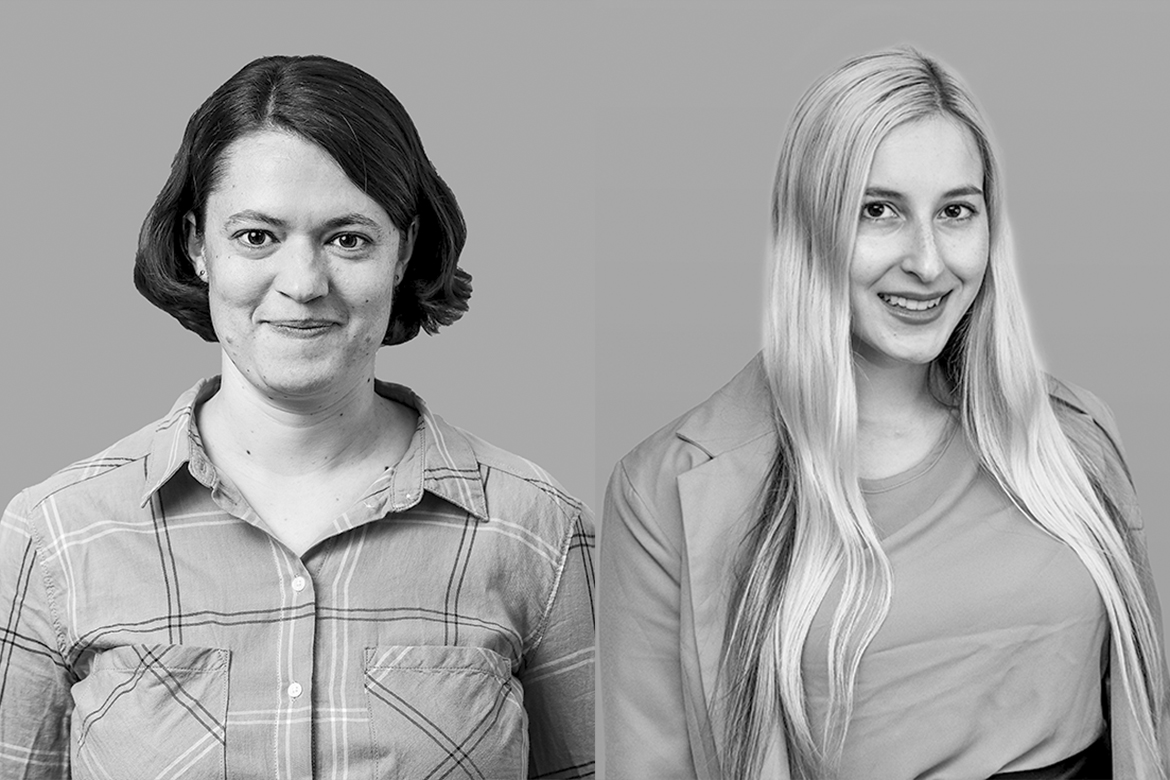Harassment among doctoral students
The relationship between doctoral students and their supervisors is a delicate one. Could ‘doctoral schools’ help to prevent abuses of power?

Often, you know in advance what you’re letting yourself in for ... | Image: Keystone/Martin Ruetschi.
“My time at ETH was the darkest period in my career”, said a former doctoral student about the years she spent at the Institute for Astronomy of ETH Zurich. In an interview with ‘NZZ am Sonntag’ in Autumn 2017, she claimed that her professor had tormented her for a full ten years. Others who were affected spoke of insults, of being forced to be available at all times of day and night, and of meetings held until midnight that had more to do with interpersonal matters than with research.
The Institute was closed down, an investigation set up, and the professor in question was temporarily suspended. Soon, further cases of harassment became public. And a survey conducted by the Academic Association of Scientific Staff at ETH Zurich (AVETH) recently revealed that every fourth doctoral student feels that they’ve been subjected to an abuse of power.
It’s unlikely that ETH Zurich is the only university in the world with problems like these. Behind closed doors, members of other universities have hinted at similar cases. Do Swiss universities have a leadership problem among their professors?
Strong professors …
What’s clear is that abuses of power at universities isn’t a new phenomenon. The dependent relationship that exists between doctoral supervisors and the supervised is part and parcel of the Humboldtian tradition, and can also have positive consequences. “A professor isn’t just a line manager, but in a best-case scenario also a patron”, says the educational economist Stefan Wolter, Director of the Swiss Coordination Centre for Research in Education.
Even today, academic careers can depend on which professor supervised which doctoral thesis. “A doctoral student is defined by his or her professor”, says Wolter. Their professor’s connections and reputation can open doors, once students have finished their doctorate. This is also why students put up with difficult personality traits in their supervisor. “Often, you know in advance what you’re letting yourself in for when you take a specific professor as your supervisor”.
This type of dependent relationship isn’t limited to universities. Wolter worked for many years in a large bank, where he observed comparable structures. “You find yourself in an insider network where the boss demands obedience”. And the employees comply with it, because their own career depends on it. “If a line manager is promoted, then his employees move up with him”.
… but weak rectors
Other factors come into play that might prevent rectors and vice-chancellors from taking action against a guilty professor in order to put a stop to the abuse of power. There’s the matter of international competition, and the power of the professors. It’s well known that someone might be a brilliant researcher, but not necessarily an excellent leader. But if someone is a leader in their field, then no one wants to lose them – even if they’re difficult to work with.
What’s more, every intervention against a professor serves to destabilise the position of university management, which in Switzerland is already in a weak position because of the way the whole system is conceived. There was a model case of this at the University of Zurich, five years ago. After the so-called ‘Mörgeli affair’, the Rector at the time sacked a woman professor who was well regarded by her colleagues. There was a huge protest, and the Rector resigned.
So do we simply have to accept abuses of power and weak leadership? No, that’s no longer the case, says Antonio Loprieno, former Rector of the University of Basel, not least because doctoral students today have a very different degree of self-awareness. “They’re the product of a globalised world, and are no longer willing to accept the family-oriented dominance of a doctoral supervisor”.
So what can we do about it? Astonishingly, professorial appointments are still made today without any real regard for a candidate’s competence as a supervisor. And it’s surprising because for some time now, universities have been subjecting all their lecturers to precise evaluations of their teaching quality. No one has yet considered trying to measure the quality of doctoral supervision. Instead, universities have created numerous ombudsmen and contact officers in the last few years. But if and when these people actually take action, it’s only after an abuse of power has already occurred.
Are doctoral schools the solution?
Perhaps it would be good if the whole system were changed. Dependent relationships could be ended with the institution of doctoral schools, such as already exist in Switzerland. Candidates would apply to a school, not to an individual professor, and the doctoral thesis would be supervised by a mentor. “Doctoral schools should be a means of combatting abuses of power”, says Caspar Hirschi, a professor of history at the University of St. Gallen. “But in real life, they’re not”.
When they were introduced, he says, the same thing happened that usually happens when things are reformed in Switzerland: new structures were set up without getting rid of the old. Because unlike in the USA or Germany, when doctoral students are accepted into a programme, they don’t automatically get the funding for their doctorate.
As a result, they have to apply to a professor for a position as an assistant – and that professor thereafter often functions as their supervisor, examiner, and even the co-author of their publications. In this manner, the old dependencies are being recreated. These problems can only be solved, believes Hirschi, if you can guarantee funding to a doctoral student, and if you separate mentoring from examining.
In his opinion, it would be more effective to set up doctoral committees such as are widespread abroad, where doctoral students are supervised by a team of professors. The system originated in American universities, where there is strong leadership at the top. There are hardly any problems with the ‘dictatorship of the professors’ in that system, says Loprieno. “The harassment case at ETH wouldn’t have happened with doctoral committees”.
However, such a system demands “a high degree of control and regulation”, says Hirschi. That’s the only way you can ensure that the professors on the committee really feel responsible for the doctoral students. It’s practised successfully in Scandinavia, but for cultural reasons it would be difficult to implement in Switzerland. Hirschi would prefer the English model. It prescribes one supervisor and two examiners – one internal, the other external. “It’s a streamlined model, with clear responsibilities for all concerned”.
But this model won’t be introduced so quickly at Swiss universities either. Loprieno believes we’re at present in a transitional phase. But on the Swiss educational landscape, transitions as a rule tend to last a long time.
Michael Furger is head of the ‘Background’ portfolio at NZZ am Sonntag.




